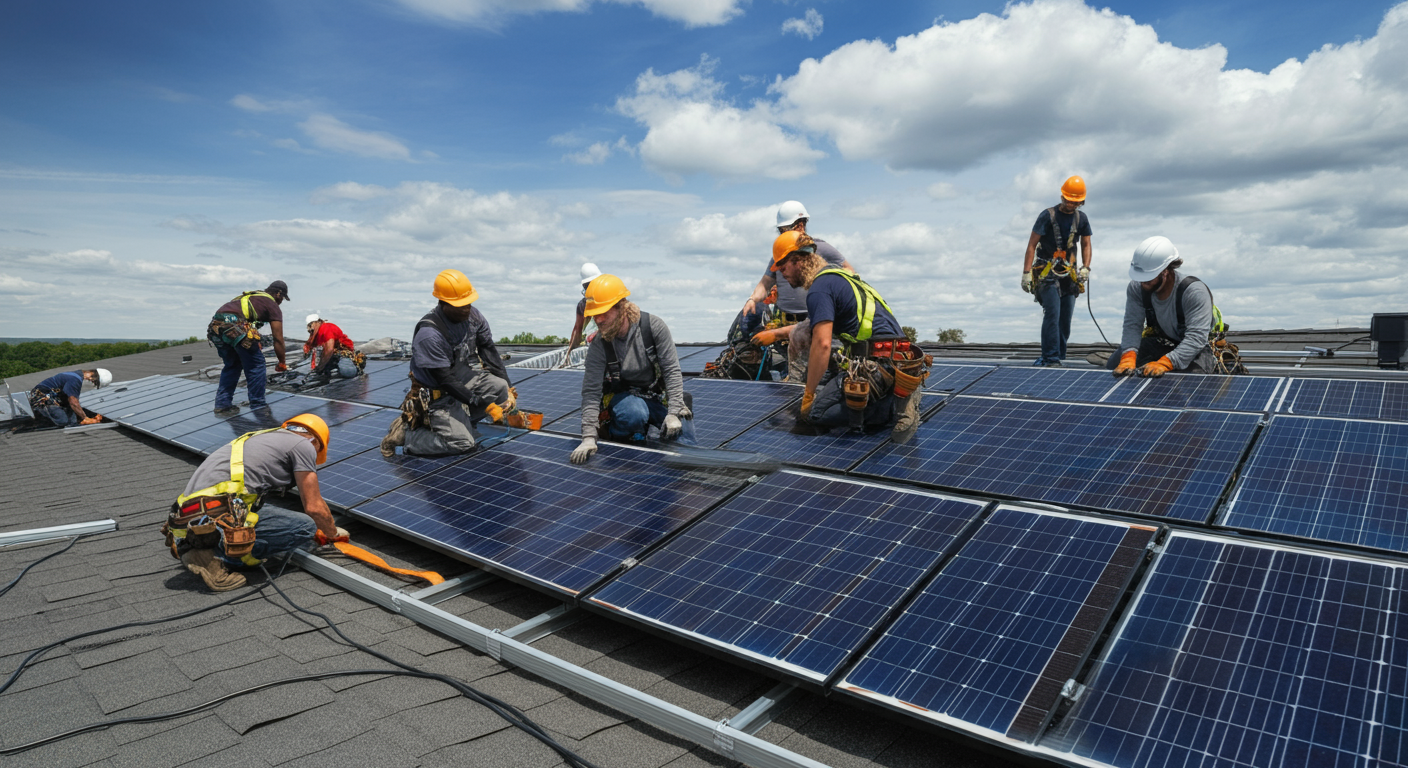Expanding a solar business into international markets requires strategic planning tailored to the regulatory, economic, and cultural nuances of each region. Below is a step-by-step guide, along with specific strategies for select regions:
1. Develop a Global Business Framework
Market Research and Entry Strategy
- Identify countries with high solar adoption potential, focusing on government incentives, solar radiation levels, and unmet energy needs.
- Choose an entry mode: direct investment, partnerships, franchising, or joint ventures.
Regulatory Compliance
- Research local regulations on solar installations, grid connectivity, and renewable energy incentives.
- Collaborate with local experts or legal advisors to streamline compliance processes.
Scalable Operations
- Create standardized processes for installation, maintenance, and customer service to ensure consistent quality.
- Use modular business models to adapt to different market sizes and demands.
2. Tailored Regional Strategies
United States and Canada
- Key Focus: Residential and commercial markets.
- Strategy: Leverage tax credits (e.g., ITC in the U.S.) and subsidies to market solar as an affordable energy solution. Partner with energy-efficient home builders to integrate solar into new developments.
-Tip: Offer financing plans or Power Purchase Agreements (PPAs) to lower entry barriers for customers.
Europe
- Key Focus: Sustainability-focused urban centers.
- Strategy: Work with government-backed programs such as the EU’s Horizon Europe fund. Focus on offering advanced battery storage and integration with smart grids.
- Tip: Differentiate your business with innovative technologies like bifacial panels or solar roof tiles.
Asia
- Key Focus: Rural electrification and urban industries.
- Strategy: Target rural off-grid communities in countries like India and Indonesia with affordable solar kits. For urban areas, offer large-scale installations for factories and malls.
- Tip: Partner with telecom or microfinance companies to enable pay-as-you-go systems.
Africa
- Key Focus: Off-grid solar for households and small businesses.
- Strategy: Collaborate with NGOs, government programs, and microfinance institutions to subsidize solar adoption. Focus on durable, low-maintenance systems for rural use.
- Tip: Offer solar packages that include accessories like energy-efficient bulbs and mobile chargers.
Latin America
- Key Focus: Commercial and industrial solar.
- Strategy: Partner with governments and private sectors in countries like Brazil, Mexico, and Chile. Offer solar solutions tailored for agriculture, such as irrigation systems powered by solar pumps.
- Tip: Use bilingual marketing to connect with local consumers effectively.
3. Establish Strategic Partnerships
- With Local Governments: Align with renewable energy goals to gain support in navigating regulations and accessing incentives.
- With Suppliers and Manufacturers: Secure reliable, cost-effective supply chains for high-quality solar equipment.
- With Financial Institutions: Develop financing plans to make solar systems more accessible.
- With Tech Providers: Integrate smart technology into solar solutions for energy monitoring and efficiency.
4. Focus on Innovation
- IoT Integration: Enable real-time system monitoring and maintenance.
- Battery Storage: Offer hybrid solutions to ensure energy availability during cloudy or nighttime hours.
- Sustainability: Highlight eco-friendly manufacturing and installation practices to attract environmentally conscious consumers.
5. Invest in Workforce Development
- Train local technicians to ensure efficient installations and timely maintenance.
- Offer certification programs to enhance credibility and attract skilled professionals.
Case Example: Expanding a Solar Business into Africa
Scenario: Expanding operations into Kenya and South Africa.
Steps Taken:
1. Partnered with local NGOs to identify high-demand regions.
2. Secured funding through the World Bank’s renewable energy grants.
3. Introduced pay-as-you-go solar kits, enabling affordability for low-income households.
4. Collaborated with local universities to train technicians and create job opportunities.
Result: Achieved 50,000 installations within two years, with a 98% customer satisfaction rate.
Conclusion
Scaling your solar business globally requires combining technical expertise with local market knowledge. By tailoring strategies to regional needs, investing in innovation, and building strong partnerships, you can achieve long-term success while contributing to a sustainable future.





